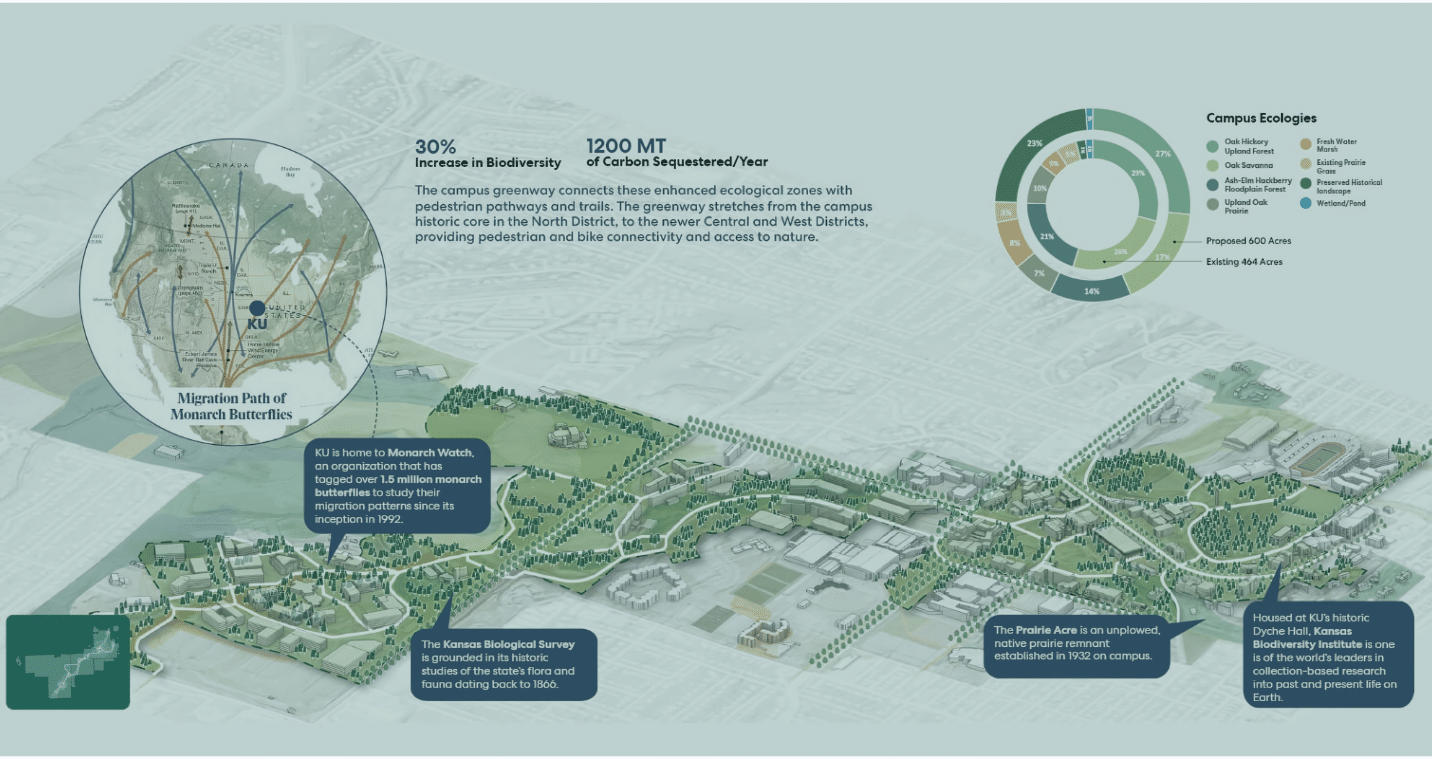Renyi Zhang is a distinguished architect and urban designer whose expertise bridges the geographical and conceptual divides between the East and West Coasts of the U.S. He holds a Master’s degree in Architecture in Urban Design from the Harvard University Graduate School of Design (GSD). After his graduation, Zhang honed his skills at internationally acclaimed firms such as Sasaki and Perkins&Will, where he contributed to a variety of projects that catered to a diverse clientele both in the U.S. and internationally. His experience at these firms helped him develop a nuanced approach to sustainable campus design, specializing in multiple-scale strategies rtand interdisciplinary coordination. Renyi’s foundational expertise in architecture—focused on crafting high-quality individual buildings—has equipped him with the unique ability to approach campus design projects “from the ground up,” ensuring a comprehensive understanding of technical requirements. This background serves as the cornerstone of his current practice, where he continues to influence the field with innovative, sustainable campus designs that anticipate and adapt to the evolving demands of modern society.
In the context of rapidly changing contemporary educational environments, Renyi Zhang reflects deeply on the limitations of current campus designs and proposes his vision for future campuses in this article. Faced with increasingly severe climate challenges and rapidly changing educational demands, Mr. Zhang focuses on creating low-carbon, sustainable campus environments. He advocates for the integration of green buildings, smart infrastructure, and ecological integration to design campus spaces that can adapt to future changes and enhance the well-being of students and staff. These plans not only demonstrate his commitment to environmental sustainability but also reflect his forward-thinking in educational space innovation under the rapidly changing environment.
Contemporary educational environments are undergoing repetitive transformation, driven by the convergence of disciplines and the push towards frontier research. This interdisciplinary approach necessitates spaces that foster collaboration and innovation. Additionally, shifts in teaching models from traditional lecturing to dynamic two-way communication demand environments that facilitate active dialogue and engagement between students and professors. There’s also an increasing expectation for academia to translate cutting-edge ideas directly into industry applications, which requires enhanced connectivity between campuses and their surrounding urban communities. These evolving needs highlight the necessity for adaptable and interactive campus spaces. As a result, the physical spaces within universities are being reimagined to support these multifaceted interactions, ensuring that they not only accommodate current educational paradigms but are also flexible enough to adapt to future changes. This rapid evolution in academic and community interaction underscores the importance of designing campus environments that are not only functional and sustainable but also integral to the broader social and economic fabric.
Meanwhile, in response to the escalating climate crisis and the evolving demands of educational environments, Mr. Zhang is committed to leading the charge in creating low-carbon, sustainable campus designs. His approach is deeply aligned with contemporary climate policies such as the Paris Agreement’s global emissions reduction targets and local initiatives aimed at enhancing urban resilience. Mr. Zhang promotes the integration of green buildings, which adhere to LEED certification standards, smart infrastructure that leverages IoT for energy efficiency, and ecological designs that support biodiversity and natural resource management. To effectively implement these strategies, he emphasizes multidisciplinary coordination involving landscape design, ecology, civil engineering, transportation systems, real estate strategy, and urban planning. This comprehensive integration not only reduces carbon footprints but also aligns campus development with cutting-edge sustainability practices. The outcome is a set of forward-thinking campuses that not only meet rigorous environmental standards but also set new benchmarks for global educational institutions in the fight against climate change.

Renyi Zhang’s recent project in Perkins&Will, the University of Kansas Campus Master Plan, showcases his commitment to sustainable and resilient design in an educational setting. The master plan, informed by thorough engagement and detailed analysis, outlines a strategic vision to transform the KU campus into a model of resilience and adaptability. The plan is centered around three core frameworks—natural systems, campus community and connections, and the built environment—designed to work synergistically to support the university’s long-term goals. One of the plan’s key features, driven by Zhang’s expertise, is the development of a sustainable landscape infrastructure intended to serve as the foundation for campus pedestrian activity and outdoor life. This includes a network of landscape spaces linked by primary pedestrian pathways that extend from the newly designed campus gateway at 11th and Mississippi to the West District. These vibrant and diverse outdoor spaces are crafted to foster community engagement and cultural expression, transforming the historic campus into a more walkable and interconnected environment. Enhanced by native landscaping and environmentally sustainable operations, these areas provide accessible and vital open gathering spaces for students and faculty, embodying Zhang’s vision for a campus that meets contemporary needs while preserving its historical essence.
Mr. Renyi Zhang’s design philosophy, deeply rooted in the evolving needs of higher education, reflects a profound understanding of the dynamic landscape of campus design. He emphasizes the importance of creating flexible and adaptive spaces to accommodate the ever-changing requirements of students and faculty. His projects adeptly merge principles of low-carbon sustainability with the preservation of cultural and natural heritage, addressing the intricate demands of modern educational environments. Through his innovative designs, Mr. Zhang not only enriches the educational experience for current generations but also establishes new standards for future campus development. His contributions extend beyond individual projects, significantly influencing the field of educational architecture by steering it towards more sustainable, inclusive, and environmentally conscious practices. These endeavors showcase Mr. Zhang’s commitment to advancing global campus design in alignment with his visionary design philosophy.
Published By: Aize Perez






